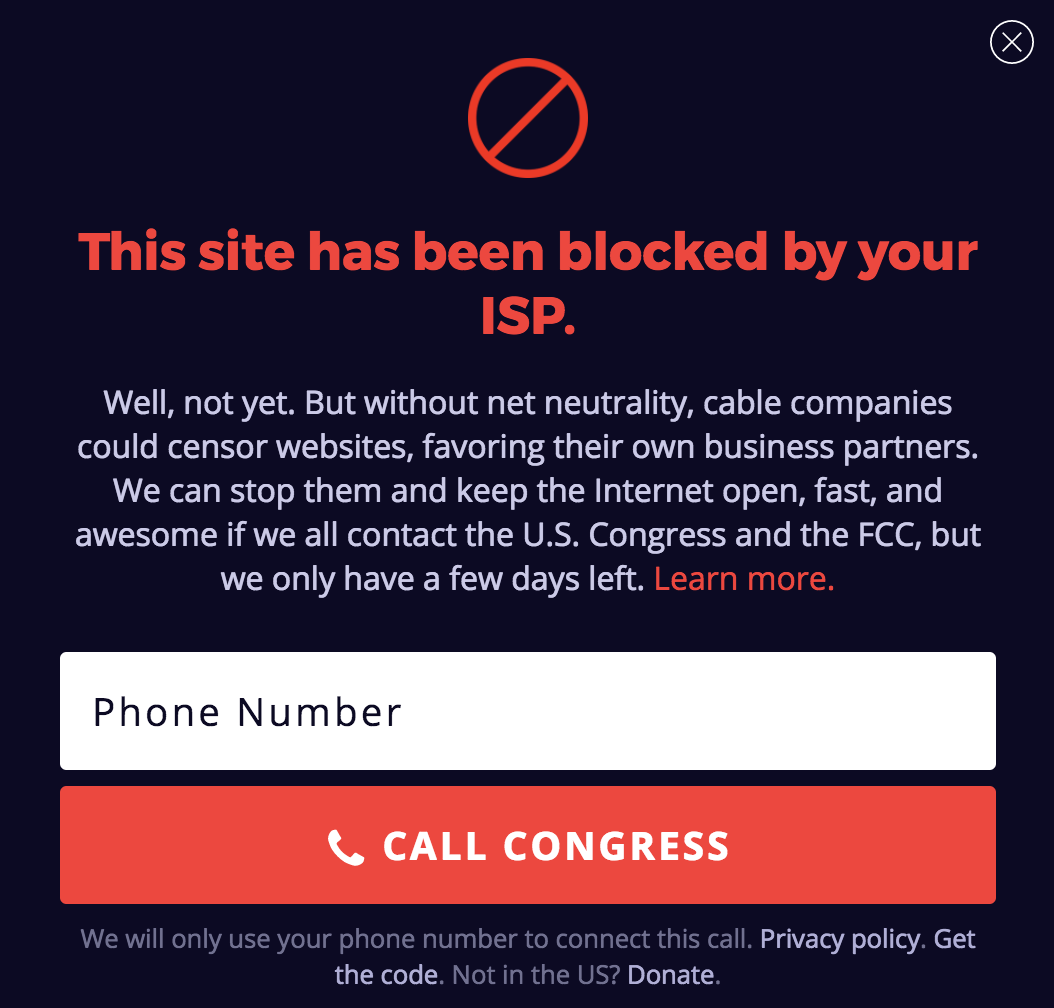Net Neutrality in the United States
December 13, 2017
“Sorry…we cannot load this page for you. Upgrade your service plan now to view this content.” Although American citizens are unfamiliar with blockages and pop-ups with messages like these, this is exactly what an end on net neutrality would create. With the passing of this policy, carriers would be allowed to decide what their customers do and do not have access to. These providers can completely block out specific content, or add any additional charge they feel is necessary for their customers to access the exclusive content.
“Today, I have shared with my colleagues a draft order that would abandon this failed approach,” Ajit Pai said. FCC (Federal Communications Commision) Chairman and former lawyer for Verizon, Ajit Pai released a draft to reshape the United States’ take on net neutrality. Pai feels that the decision the FCC made in 2015 under the pressure of President Obama that allowed net neutrality and placed utility-style regulations upon the internet was a mistake. Pai plans to completely get rid of and rework the core regulations on net neutrality.
Making larger businesses thrive, increasing taxes and prices for anyone seeking information, raising the cost for those wanting to use data/internet services, and having complete control over what citizens hear/see – these are the effects of ending our current net neutrality allowances. This is what every person in the United States could potentially be facing, as a repeal for net neutrality has been proposed.
Under Obama’s Democratic administration, regulations were put into place to prevent large service providers like AT&T or NBC from adjusting the speed of services, either slowing them down or speeding them up. Rules also were built to ban the blocking of content or certain web services by service providers. Net neutrality exists in the US to ensure every crack and crevice of the internet is open to everyone, and free to all people at any point in time. Currently, there are no “slow lanes” or “fast lanes” based upon the price you pay your provider. There are no bundles citizens must pay for in order to access an app or website they frequently use. Internet Association CEO Michael Beckerman has spoken out against appealing net neutrality calling it “the end of net neutrality how we know it.”
Large content providers, such as Google, Amazon, Apple, Facebook, and Netflix, are all vocal opponents for Pai’s proposal and draft to end net neutrality. Beckerman said, “Consumers have little choice in their [internet service provider], and service providers should not be allowed to use this gatekeeper position at the point of connection to discriminate against websites and apps.”
Many content providers and applications have spoken out against this repeal, and have vocally made their claim to not change their service speed or accessibility. After two failed attempts to craft net neutrality by the FCC and a decade long battle to earn this neutrality, these businesses have expressed an understanding for their users and do not intend to make any changes. Websites and businesses including Etsy, Reddit, change.org, Yelp, Pinterest, and Spotify (to name a few) joined together in an online protest against the repeal.
The end of net neutrality could silence minorities, and prevent smaller businesses from maintaining or gaining web traffic. Many new businesses and entrepreneurs rely on the open internet to spread word of their products and services. If net neutrality were to be appealed, more traffic would be focused around popular content, losing focus on smaller websites or advertisements. Currently, with no leveled internet access, businesses have been thriving on the web. Without net neutrality, the focus would be centered around websites and businesses that are already successful; the ones that will bring in profit. Start-up businesses would never be given the opportunity to take off because they won’t have the revenue to pay for the fast lane.
This controversial vote takes place tomorrow, December 14, 2017. This could be a pivotal moment for the United States, or a continuation of what we have grown familiar with when using internet services.
